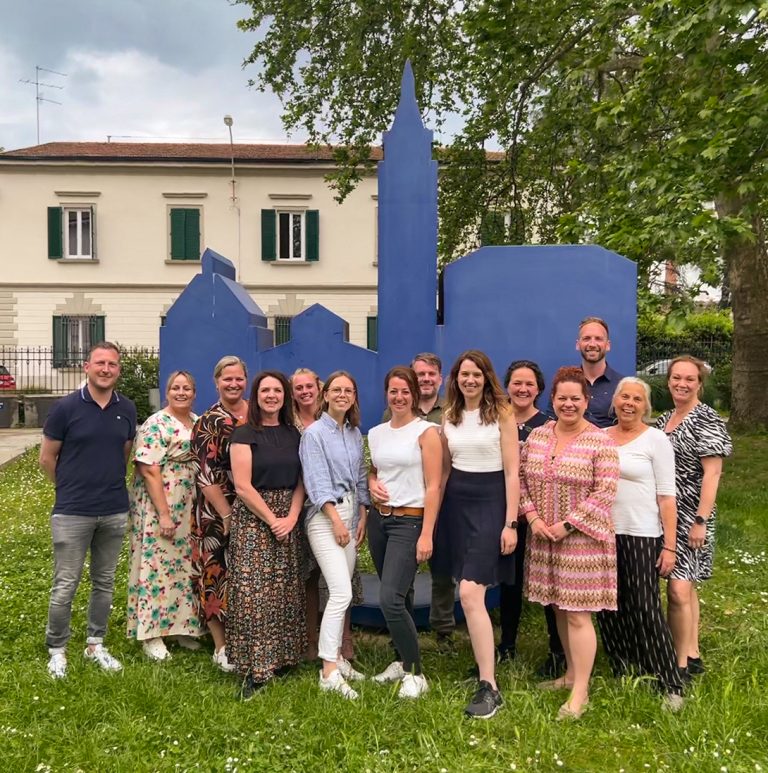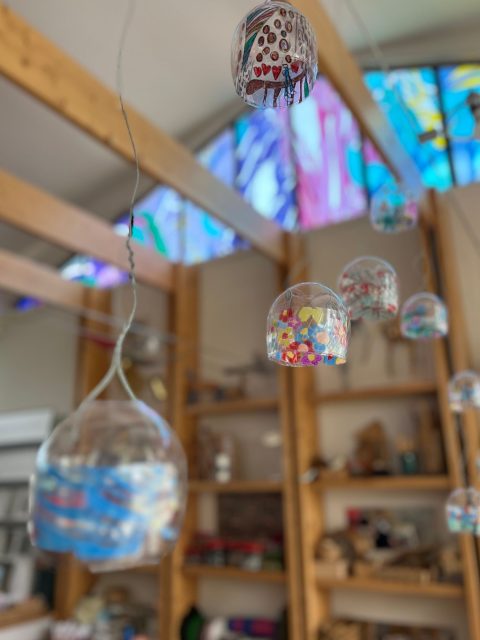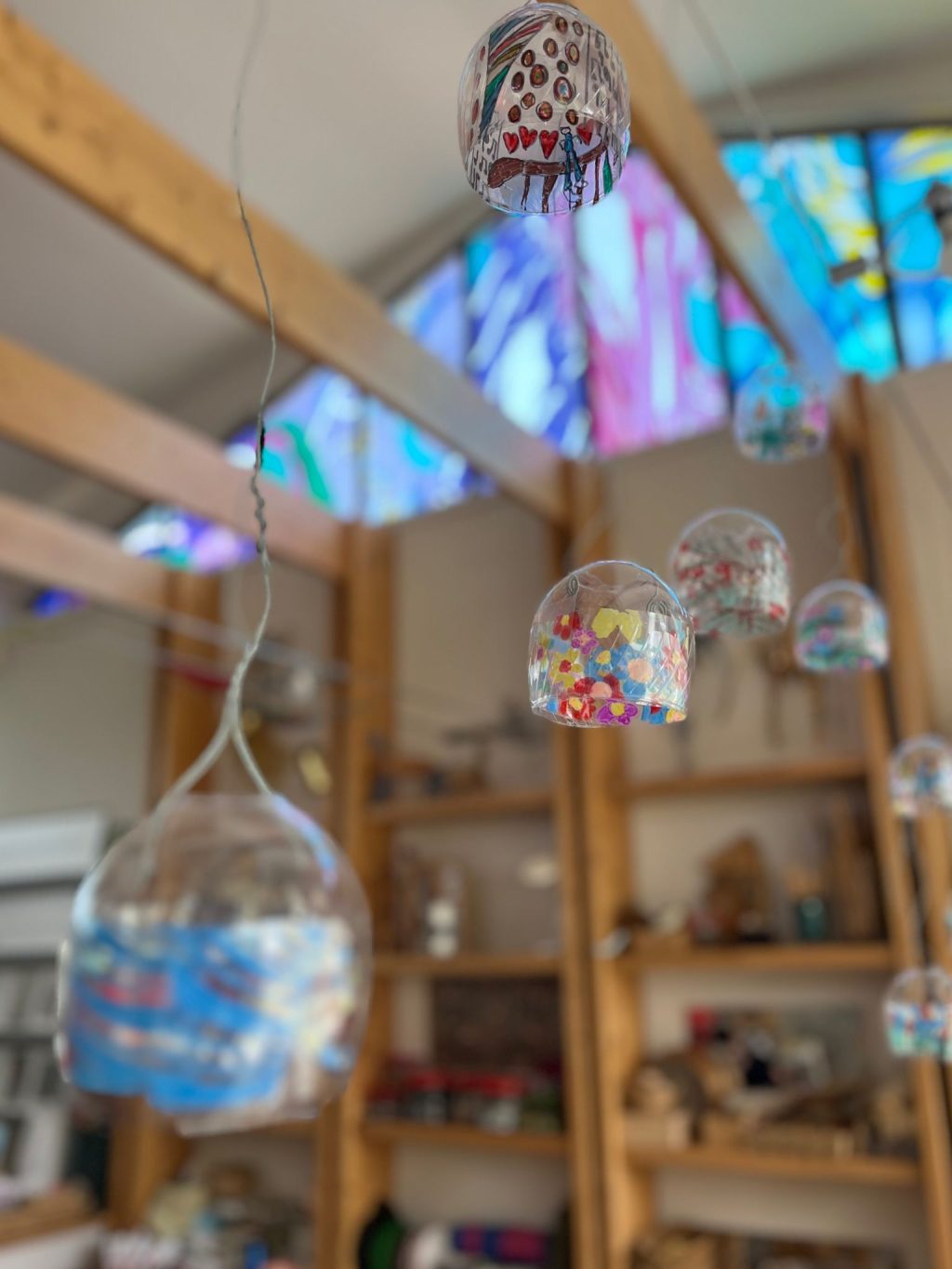This week a group of colleagues from Kibeo traveled to Pistoia in Italy for a 2-day study trip. The program included various and interesting visits to 6 different locations, each with their own specialism. From an Area Bambini Blu, where children are completely absorbed in art and expression, to a location where parents with children up to 18 months come together to learn with and from each other.
Pedagogical approach Reggio Emilia
The study trip was all about the ideas of Reggio Emilia, a pedagogical approach developed in Italy, in which a lot of attention is paid to the talents of the child and the way in which a child develops.
In Pistoia they have been inspired by the vision of childcare from Reggio Emilia. This was clearly visible at the various locations. The group spoke with pedagogical professionals who passionately shared their vision on childcare and child development.
Observe well
of the child is an important starting point in Pistoia. Activities are tailored to the interests of the children in the group. Children think along and are given the space to come up with solutions themselves to carry out the activities. In the observation there is also an eye for the personal development of the child. A pedagogical professional offers materials that help the child to take the next step in development.
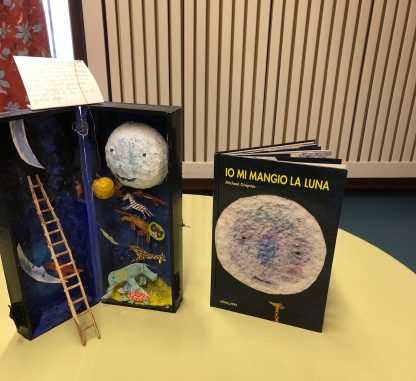
Attention to language development
Much attention is paid to the language development of children aged 0-6. This is similar to how we work on language development at Kibeo, they just apply it differently. In Pistoia, the starting point of the activity is always a story or book, after which the children go on their own discovery and make artistic creations themselves. Every moment of the day is therefore dominated by language.
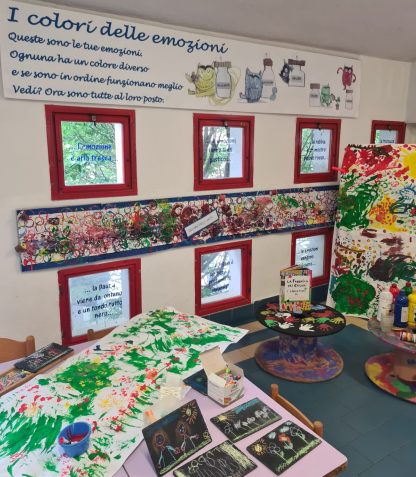
Place in the group, family and community
Much attention is paid to the identity of the child, the emotional development and naming of the emotions and the place that children occupy in the group, the family and the community, they are part of the whole. They are seen as full fellow citizens of the city. It was inspiring to hear how the Child Care for Local Connectivity works with retailers, the hospital and other organizations in the city to make the children's work and childcare visible to the citizens of Pistoia.
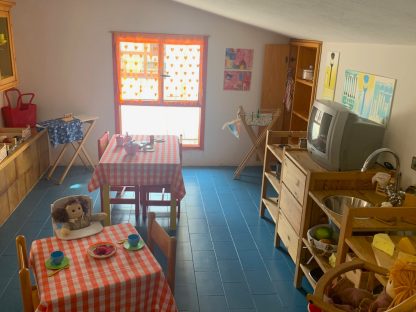
Space as a third educator
Challenging spaces in the childcare, spacious green outdoor areas and the provision of inspiring material play a major role in the pedagogical approach. Space is seen as the third pedagogue. This is in line with the new Kibeo curriculum which also includes this. It was interesting to see that in practice here. At all locations, the furnishings are consciously geared to the needs of the children. There is something to discover and experience in every room. Children can easily pick up play materials themselves. Much use is made of natural and recycled materials. Parents help by donating items and making furniture and materials themselves.
Parent involvement
Parent involvement is of great importance in Italy. Reception centers like to get to know the parents well. For example, attention is paid to the well-being of the child and the family as a whole. Parents regularly visit the childcare and sometimes do activities themselves that their children also do. This way they experience what their son or daughter experiences at the shelter. Parents and grandparents help with the various activities in order to share their talents with the next generation. They see the reception location as part of their community and are happy to help with the maintenance and furnishing of the location.
Role of the municipality
On Tuesday we were welcomed by the Education Department of the municipality of Pistoia. The municipality has a major role in the quality and organization of childcare. They shared the ideas and explained how the various branches work together in the field of training, education and research.
Continued within Kibeo
We look forward to developing and enriching the childcare at Kibeo with what we experienced in Pistoia. To make such a nice contribution to the development of the children. So that they grow in their identity, discover their talents and learn skills in a playful way. In the meantime, we will of course continue to develop the content of our beautiful profession!
We look back on a successful and inspiring study trip. Special thanks to the tour guide Kirsten Nøhr and Serv Vinders for the good and pleasant guidance during the trip!
